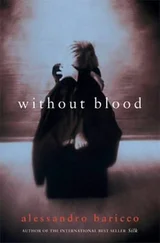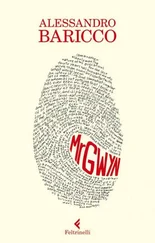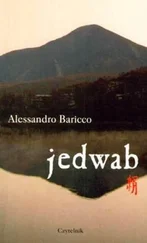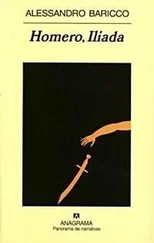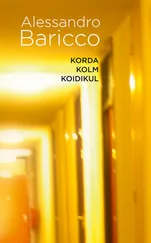Alessandro Baricco - The Young Bride
Здесь есть возможность читать онлайн «Alessandro Baricco - The Young Bride» весь текст электронной книги совершенно бесплатно (целиком полную версию без сокращений). В некоторых случаях можно слушать аудио, скачать через торрент в формате fb2 и присутствует краткое содержание. Год выпуска: 2015, Издательство: Europa Editions, Жанр: Современная проза, на английском языке. Описание произведения, (предисловие) а так же отзывы посетителей доступны на портале библиотеки ЛибКат.
- Название:The Young Bride
- Автор:
- Издательство:Europa Editions
- Жанр:
- Год:2015
- ISBN:нет данных
- Рейтинг книги:3 / 5. Голосов: 1
-
Избранное:Добавить в избранное
- Отзывы:
-
Ваша оценка:
- 60
- 1
- 2
- 3
- 4
- 5
The Young Bride: краткое содержание, описание и аннотация
Предлагаем к чтению аннотацию, описание, краткое содержание или предисловие (зависит от того, что написал сам автор книги «The Young Bride»). Если вы не нашли необходимую информацию о книге — напишите в комментариях, мы постараемся отыскать её.
The hand of the young woman in question has been promised to the scion of noble family. She is to make her preparations for marriage at the family’s villa, where the inhabitants never seem to sleep. The atmosphere turns surreal as the days pass and her presence on the family estate begins to make itself felt on her future in-laws.
In this erotically charged and magical novel, Alessandro Baricco portrays a cast of mysterious characters who exist outside of the rules of causation as he tells a story, an adult fable, about fate and the difficult job of confronting the Other and creating an Us.
The Young Bride — читать онлайн бесплатно полную книгу (весь текст) целиком
Ниже представлен текст книги, разбитый по страницам. Система сохранения места последней прочитанной страницы, позволяет с удобством читать онлайн бесплатно книгу «The Young Bride», без необходимости каждый раз заново искать на чём Вы остановились. Поставьте закладку, и сможете в любой момент перейти на страницу, на которой закончили чтение.
Интервал:
Закладка:
I looked around. The things, the orderliness, the half-light. The lair of a maniac, L. had said. A little exaggerated, as usual. And yet.
Is it possible that it has to end like this?
Occasionally — as has surely been noted — I happen to think: is it possible that it has to end like this?
For my part, it was a while since I’d thought it. I had stopped interrogating myself. We slide down, without noticing much, deafened by grief, and that’s all.
But at that moment I thought— Is it possible that it has to end like this? — and it was clear to me that, whatever the destination of my life, the light in which I was waiting to know it was certainly inappropriate, as the landscape in which I allowed it to approach was absurd, and the rigidity that I had reserved for the wait was demented. It was all unfair.
On the turn that my affair had taken I didn’t dare to pass judgment. But as for the décor, I had something to say.
I will not die at night, I will die in the light of the sun.
That was what I had to say.
Honestly, I would never have expected such a burst of determination and I’m still amazed that what generated it was a sentence read in a book (that it was a book of mine is undoubtedly a rather painful detail). What I can say is that I took the thing literally — I will not die at night, I will die in the light of the sun — since I had long since lost the energy, or the imagination, to elaborate the thing symbolically, as no doubt the Doctor would have demanded of me (among other things, it has been determined that I owe him twelve thousand euros), surely pushing me to translate the term “light” into a new disposition of the spirit and the term “night” into the projection of my blind fantasies: bullshit. I resolved, more simply — and not having available, as I said, the energy and imagination needed for a different solution — to go to the sea. No, not really — I’m not so lacking in energy and imagination, after all. But it’s true that, instead of imagining who knows what, I was able only to go back to a morning years ago and a ferry that, in winter light, carried me to an island. It was in the south. The speed was slow, the sea calm. If you sat on the proper side of the bridge, you would travel with the sun in your eyes, but since it was a morning in February you were just bathed by the light. The muffled sound of the engines was a comfort.
It must still exist, I said to myself. I was thinking of the ferry.
It was a matter of reconstructing some details that now escaped me (what island? for example), but naturally we’re speaking of negligible obstacles, and that’s the reason that, with a determination that now still amazes me, I got off the couch to get on that ferry, though I was perfectly aware of the uncertain series of movements that going from one to the other would involve (it’s miraculous, on the other hand, how, in the formal simplicity of the written sentence, “couch” and “ferry” are practically attached: this is the primacy of writing over living, as I will never get tired of repeating). I remember that I took leave of my apartment in twenty minutes — and more generally from a particular apparatus of partial certainties, and ultimately from the organized darkness in which I had buried myself. If one had an idea of how little is required to dismantle them, one would never waste so much time building strategic defenses against the insults of life. There was enough time to choose the few objects to take away — the number eleven occurred to me. Eleven objects, then — choosing them was a delight. I did it while, at a similar pace, the Family, in my head, sailed toward vacation, in a broad collective movement that later was a pleasure to fix in the clear lines of the writing, at a table in a tiny hotel, the first on the road south, during the first night after eternity. Having to arrange things in an orderly fashion, I began by remembering how the vacation, for all of them, represented an irritating problem that was resolved by a couple of weeks spent in the French mountains: I don’t know exactly where, but I must have already said that it was generally interpreted as an obligation, and so borne by all with gracious resignation.
To reduce the annoyance to a minimum, they resorted to fragile expedients, the most curious of which was to avoid packing suitcases: they would buy everything when they got there. The only one who had trunks, and insisted on using them, was the Uncle, who liked to take with him, without pointless half measures, everything he possessed. He packed himself: given that he did it sleeping, the thing could take weeks. All the others, on the contrary, applied themselves the morning of the departure, setting aside objects of dubious usefulness in small purses that they then often forgot. There were some constants: the Mother, for example, never left without her pillow, some postcards that on earlier trips she hadn’t had time to write, lavender sachets, and the score of a French song whose last page was missing. The Father was set on taking a chess handbook, the Daughter an album and oil paints (for mysterious reasons she left at home the colors from azure to blue). The Son, in the days before he disappeared, took apart the clock on the stairs and brought the pieces, promising himself to put it back together during the vacation. The final result of such a selection of objects was a moderate number of bags and a certain sum total of regrets: it was often necessary to leave at home precious fragments of the common folly.
Modesto saw to the house. There, too, faithfulness was maintained to a protocol whose rationale, if it existed, was rooted in a past that could no longer provide explanations. All the furniture was covered with linen sheets, the pantries were filled with every nonperishable food item, the shutters were half closed, except those facing south; the carpets were rolled up, the paintings were taken off the walls and placed on the floor (there was a reason but it had been lost), the clocks were allowed to wind down, yellow flowers were placed in every vase, the table was set for a breakfast for twenty-five people, the wheels were taken off everything that had wheels, and all the garments that, in the course of the past year, had not been worn at least once were thrown away. Particular care was reserved for the treasured rite of leaving half-finished acts scattered throughout the house: it seemed a sure guarantee that they would return to complete them. Thus, once the Family had left, the rooms offered to an attentive gaze a whole storm of activities abandoned midway through: a soapy shaving brush, card games left at the crucial moment, basins full of water, half-peeled fruit, a cup of tea still to be drunk. On the piano a score was usually open to the next-to-last page, and an unfinished letter always remained on the Mother’s desk. Hanging on the kitchen wall was an apparently urgent shopping list, in the drawers exquisite crochet works were left uncompleted, and on the billiard table a sublime shot was inexplicably put off. In the air, if one could have seen them, hovered thoughts broken off in the middle, incomplete memories, illusions to perfect, and poems without endings: it was thought that fate could see them. The picture was completed, at the moment of departure, when a good part of the baggage was left, forgotten, in the halls — a gesture that was painful but considered crucial. In the light of such dedication, the possibility that the dangers of the journey might cause any of them not to return home was considered simply offensive.
It took a certain amount of time to carry out all these tasks. So the family began preparing for the departure well in advance, gently aligning the daily dictation of activities with the target represented by THE DAY OF DEPARTURE. In practice, it meant that each one continued to do exactly the same things, adding to gestures an extra precariousness generated by the imminence of leave-taking, and removing from thoughts any residual dramatic tone, made useless by the approaching spiritual amnesty. Only the Uncle, as noted, proceeded with large-scale works (packing the trunks). For the rest, the imminence of THE DAY OF DEPARTURE was made tangible by the feverish activity of the staff, an octopus of which Modesto represented the head and the more negligible servants the tentacles. The mandate was to do everything with great refinement but without useless hesitation. Given that, for example, owing to an inexplicable custom, all the pillows in the house were removed and assembled in a single wardrobe, the least that could happen was that the thin cushion that softened the wicker of the chairs around the table for breakfasts would be removed, with a certain style, from under your rear: in that case, you didn’t even break off the conversation, you simply raised yourself slightly, as if you had an urgent need to release gas, and let the servants complete their task. In the same way they might cause a sugar bowl to vanish, or shoes, or, in especially dramatic cases, entire rooms: you suddenly discovered that the use of the stairs had been suspended. So, while its inhabitants continued to dismiss the deadline that awaited them, placing THE DAY OF DEPARTURE in a near future with uncertain borders, the house proceeded inexorably toward the goal: a sort of double velocity emerged — one of the spirit, the other of the things — that opened the tranquility of the days to the incursion of surreal dissymmetries. There were people who, without blinking an eye, sat at tables that were no longer there, guests who arrived late for events that were still to happen, mirrors that, removed from their positions, reflected events of hours earlier, and noises that, remaining in the air, orphaned of their origins, wandered through the rooms until Modesto saw to relocating them, temporarily, in drawers that were later marked with a red painted cross. (Seldom, upon returning, did anyone remember to release them. The family preferred to do it, as a game, during Carnival: then, sometimes, friends or acquaintances appeared who, belatedly, came by to retrieve a particular sentence or a bodily noise that had been lost the preceding summer. Lawyer Squinzi, to take just one example, managed to recover a burp from the previous year in a drawer where, to his surprise, he also found a hysterical laugh of his wife’s and the start of a hailstorm that, at the time, had made the price of peaches take off. Don Giustelli, an excellent man of the Lord whom I had the good fortune to know and to see regularly, confessed to me once that he used to show up at the opening of the drawers to corner the market in answers. You know, there were a lot of them inside there, he told me. I became persuaded, he found a way of explaining, that in the period preceding THE DAY OF DEPARTURE, in that house, many answers were lost in conversation, because one paid less attention (at times no attention) — so they were lost. They remained in the air, that was known: and later ended up in the famous drawers. Usually, Don Giustelli added, in February I had already used up my supply of answers, so of course it was convenient to go and retrieve some from those drawers, and without spending a cent, besides. All answers of excellent quality, he emphasized. In fact, when he wished to show me some, I had to agree that the formal quality was almost always superior to the norm. There were some that were splendidly terse— never, forever —and no shortage of ones endowed with a kind of elegant musicality: not in revenge, if anything out of astonishment, at most by chance . (I, personally, however, found those answers agonizing . The fact that you could no longer link them to any question was obviously intolerable. It wasn’t only my problem. Some years ago, the youngest daughter of the Ballards, then twenty, appeared at the opening of the drawers to retrieve a guitar chord that had made her dream the summer before, but she didn’t get far enough to find it, because, as she was just making her way through the sounds, she got stuck at an answer that she later brought home, in place of the guitar chord, feeling with absolute certainty that if she didn’t find the question it referred to her brain would burst. She spent the next thirteen months interrogating dozens of people, with the sole, furious intention of finding that question. Meanwhile the answer, lying in her mind, seethed with splendor and mystery. In the fourteenth month she began to write poetry, in the sixteenth her brain exploded. Destroyed by grief, her father wanted to understand what had defeated her in that way. He found it curious that a girl so intelligent could let herself be beaten by the disappearance of a question rather than by the harshness of an answer. Since he was a man of great practicality and excellent common sense, he overcame his grief, went to Modesto, and asked if he had ever heard that answer.
Читать дальшеИнтервал:
Закладка:
Похожие книги на «The Young Bride»
Представляем Вашему вниманию похожие книги на «The Young Bride» списком для выбора. Мы отобрали схожую по названию и смыслу литературу в надежде предоставить читателям больше вариантов отыскать новые, интересные, ещё непрочитанные произведения.
Обсуждение, отзывы о книге «The Young Bride» и просто собственные мнения читателей. Оставьте ваши комментарии, напишите, что Вы думаете о произведении, его смысле или главных героях. Укажите что конкретно понравилось, а что нет, и почему Вы так считаете.

